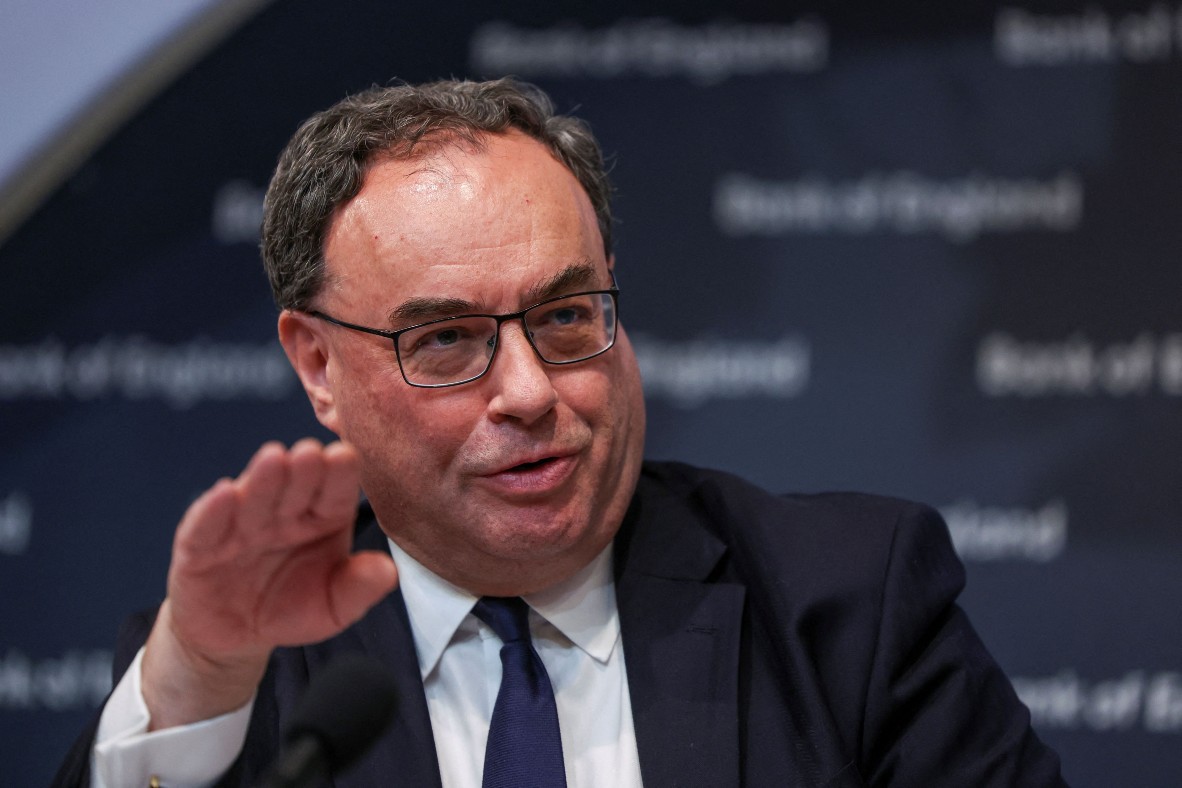Sticky inflation and sluggish growth: why does UK economy continue to struggle?
Food prices, Brexit and the Bank of England have been blamed for poor economic performance

A free daily email with the biggest news stories of the day – and the best features from TheWeek.com
You are now subscribed
Your newsletter sign-up was successful
The UK’s economy shrank by 0.3% in March, with the first quarter of 2023 seeing “sluggish growth” of 0.1%, placing the UK once again towards the bottom of the league table of developed economies.
The figures come less than 24 hours after an admission by the Bank of England that it does not expect inflation to fall to its 2% target until 2025.
The UK’s 10.1% inflation rate is the worst in the G7 club of rich economies, said The Times, leaving many wondering what is making the UK economy so uniquely poor.
The Week
Escape your echo chamber. Get the facts behind the news, plus analysis from multiple perspectives.

Sign up for The Week's Free Newsletters
From our morning news briefing to a weekly Good News Newsletter, get the best of The Week delivered directly to your inbox.
From our morning news briefing to a weekly Good News Newsletter, get the best of The Week delivered directly to your inbox.
What did the papers say?
Car sales and the retail sector had a “bad” March, said the BBC, with poor weather and industrial action also pointed to by some as being behind the month’s poor figure.
“Strikes and the weather are factors here,” said the BBC’s economics editor, Faisal Islam, “but there is no denying the sluggish pattern that has persisted for a year now, as energy prices have risen.”
He pointed out that, on a quarterly basis, the UK economy has “still not regained all the ground lost since the pandemic and Brexit”.
Inflation is being kept so high by the “rising cost of services since the pandemic, increasing energy costs caused by the war in Ukraine, and record food and clothing prices”, said The Times.
A free daily email with the biggest news stories of the day – and the best features from TheWeek.com
Overall inflation remains stubbornly high “largely because food inflation, running at almost 20%, is coming down more slowly than predicted”, wrote Larry Elliott, economics editor of The Guardian.
But why are food costs so high? Supermarket bosses blame “meddling ministers” after they imposed “eye-watering” costs on the industry, said The Telegraph.
The bosses of Britain’s biggest grocers told John Glen, chief secretary to the Treasury, that “onerous regulation covering everything from recycling to border checks was making the weekly shop more expensive”.
Some are blaming Brexit, wrote Richard Partington, The Guardian’s economics correspondent, as it has “added to delivery times and costs for UK imports, a factor likely to be passed on to consumers in the shops”. In addition, a “lack of available staff in many sectors of the economy is forcing companies to offer higher wages to recruit or retain employees”.
Meanwhile, Duncan Simpson, executive director at the Adam Smith Institute, a think tank, told The Telegraph that the “failing Bank of England” was to blame. “Years of low rates and printing money has led to sky-high inflation,” he said. “Britons are now reaping what the Bank has sown.”
However, said the Financial Times, the Bank’s governor, Andrew Bailey, has criticised “the language of blame”, saying the Covid pandemic and the war in Ukraine were events that had pushed up inflation and which the Bank “could not have anticipated”.
What next?
Those looking for good news on the horizon will have their eyes fixed on two forthcoming announcements. The current second quarter could “see a fall” in GDP, warned Islam, due to the extra bank holiday for the coronation. This would leave people hoping for better news later in the year.
Meanwhile, the next consumer price inflation (CPI) figures are due to be reported on 24 May, and analysts will be hoping for better news there. “It will be significantly lower – probably in the region of 7% to 8% – purely because of base effects,” wrote John Stepek for Bloomberg.
Were inflation to remain stubborn, it could have political ramifications for the prime minister, who promised to halve it by the end of the year. “If I were Rishi Sunak,” wrote columnist Jack Kessler in the Evening Standard, “I would be concerned… most of all about inflation, which is looking awfully sticky.”
Although the Bank of England expects inflation to fall to 5.1% by the end of the year, that is significantly higher than the 3.9% in its February forecast, “placing the prime minister’s pledge to halve inflation at risk”, he added.
Meanwhile, there is a danger that further interest rate rises could write a plot twist into the story, said Elliott. The “higher rates go the bigger the risk that the economy will at some point crack under the strain”, he wrote, warning that “having been relentlessly too pessimistic in the past”, the Bank of England “could now be overly optimistic about the economy’s resilience”.
Chas Newkey-Burden has been part of The Week Digital team for more than a decade and a journalist for 25 years, starting out on the irreverent football weekly 90 Minutes, before moving to lifestyle magazines Loaded and Attitude. He was a columnist for The Big Issue and landed a world exclusive with David Beckham that became the weekly magazine’s bestselling issue. He now writes regularly for The Guardian, The Telegraph, The Independent, Metro, FourFourTwo and the i new site. He is also the author of a number of non-fiction books.